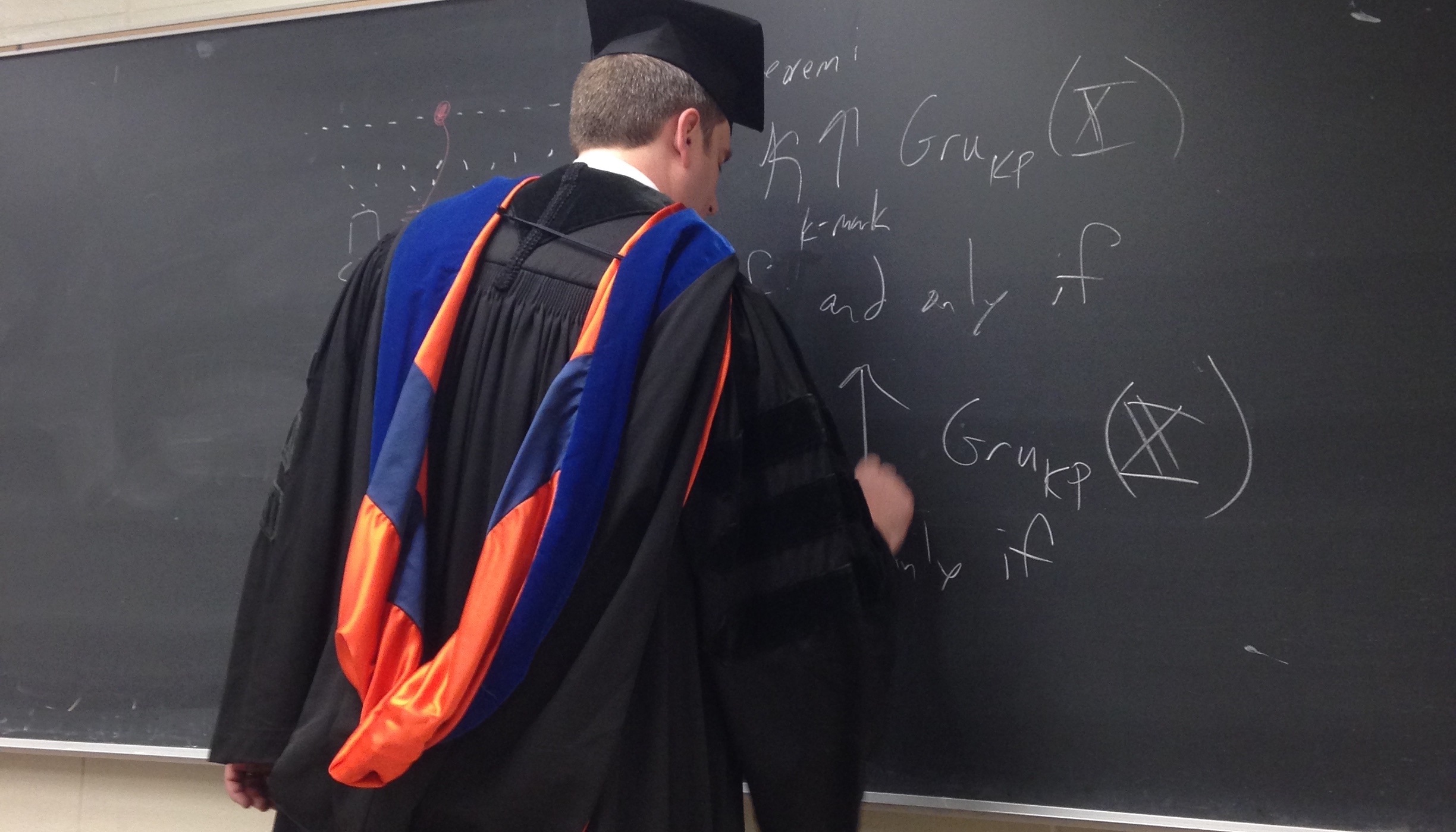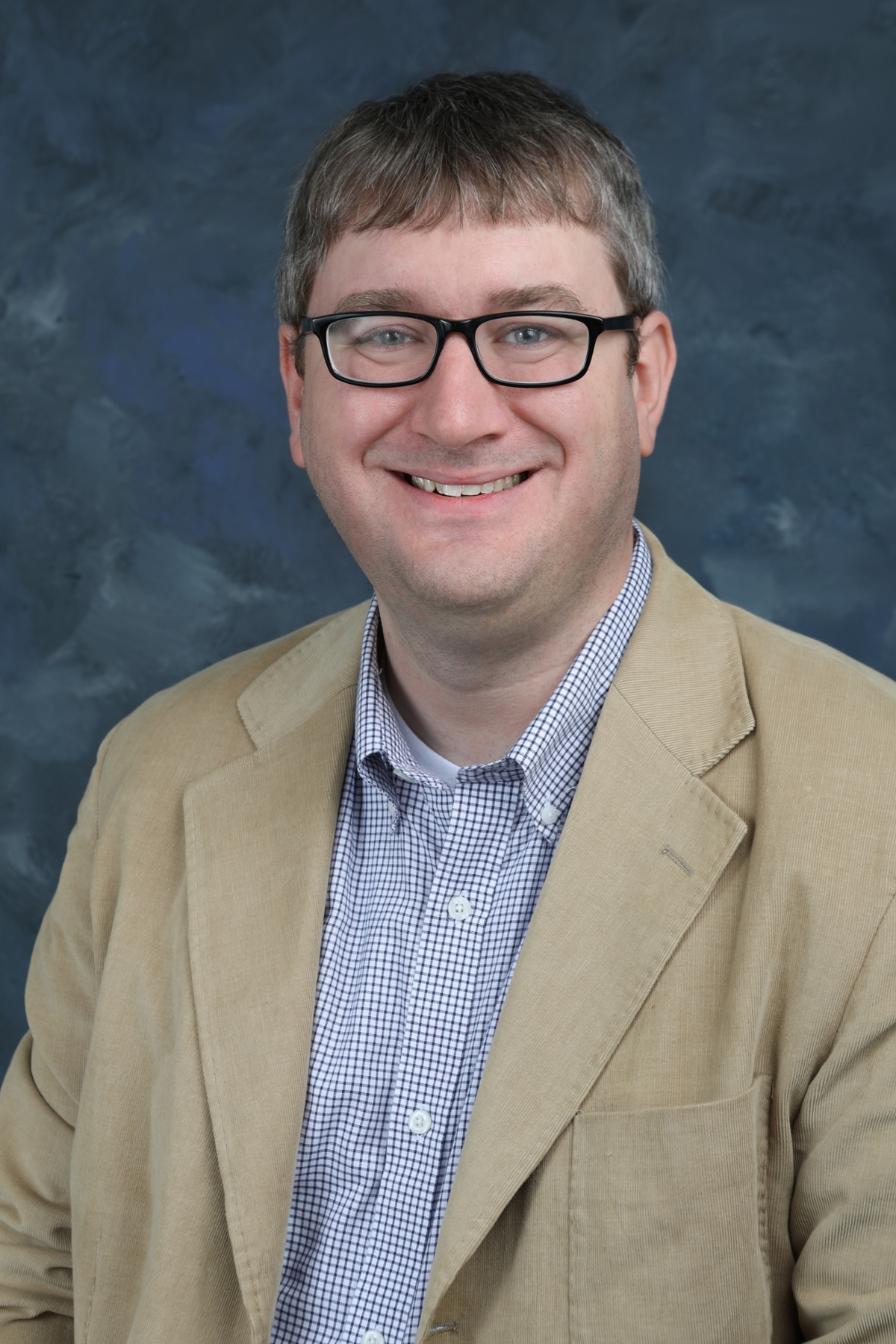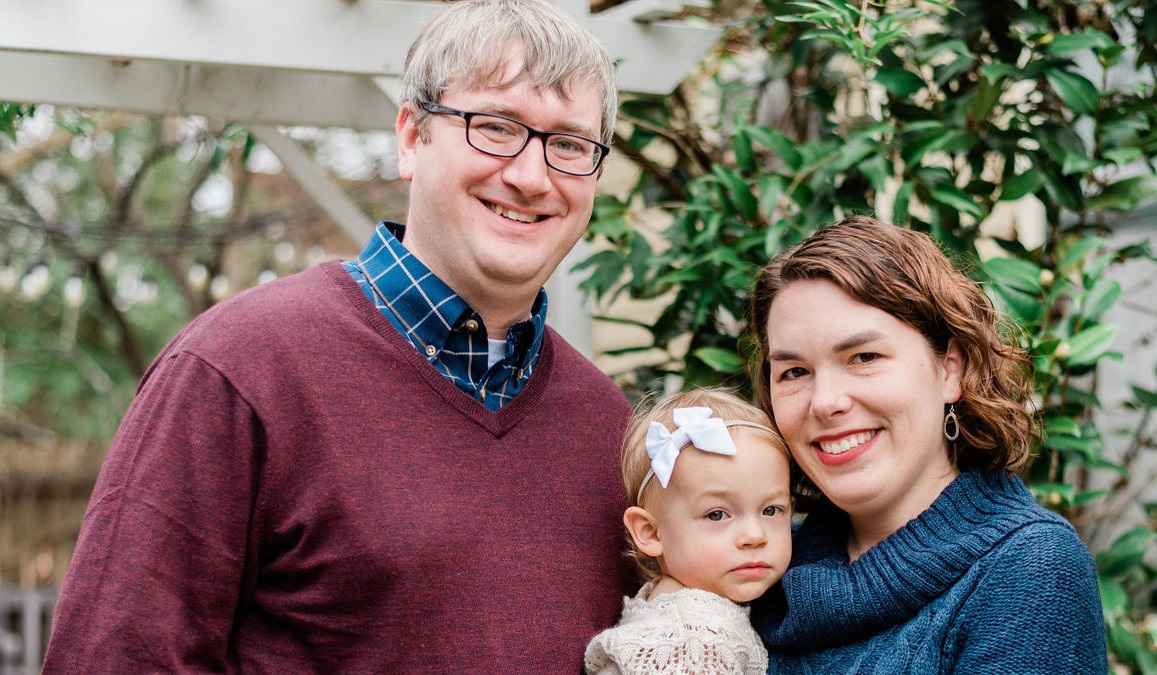COSAM News Articles 2022 March COSAM alumnus Steven Clontz’s journey in mathematics, puzzle design and latest puzzle "SumIt"
COSAM alumnus Steven Clontz’s journey in mathematics, puzzle design and latest puzzle "SumIt"
The web-based word game Wordle has soared to popularity in recent months, but for those wanting to put their mathematics brainpower to the test, a daily math puzzle called SumIt now exists – which happens to be created by COSAM alumnus Steven Clontz.
A native of Huntsville, Clontz is a mathematician, puzzle designer, and professor. He spent 11 years at Auburn University studying mathematics, earning a Bachelor of Science degree in 2008, a Master of Science degree in 2010, and a PhD in 2015 with specializations in topology and game theory. While attending Auburn, he met his wife Jessica who received two master’s degrees in education – library media and educational leadership. The couple now resides in Mobile, where he is Assistant Professor in the Department of Math and Statistics at the University of South Alabama (USA).
Looking back, Clontz became interested in puzzles at a young age, through the immersive storytelling format that video games present as a player becomes a character in a story. “I always enjoyed playing Nintendo and games like The Legend of Zelda that integrated puzzle and escape room elements,” said Clontz.
“Later, when I was in graduate school at Auburn, I met my friend Eric Harshbarger, also an Auburn alum and mathematics instructor, who designed puzzle hunts. The interactive puzzle hunts were like a real-life video game for me, so I thought it would be fun to start designing some for general audiences.”
Clontz then teamed up with fellow mathematics graduate student Braxton Carrigan to create the Auburn Mathematical Puzzle Challenge (AMP’d), a COSAM Outreach event held annually each spring where teams of middle school students work together to complete their mission by answering real mathematical puzzles in a fun environment.
After receiving his PhD, Clontz co-founded Mathematical Puzzle Programs (MaPP) to continue designing these types of events at a national level. “In about a month, COSAM is running our national MaPP to replace AMP’d for high school students, so it’s nice how things have come full circle,” said Clontz. His puzzles and games have been featured at such venues as the National Museum of Mathematics in New York City. He has also published puzzle books, as author of Tricky Logic Puzzles for Adults and co-author, along with wife Jessica, of Do the Math! Challenging, Fun Math Puzzles for Kids.
Clontz’s most recent puzzle, SumIt, was developed only a few months ago. “On New Year’s Day, I came across the mention of Wordle on my Twitter feed and started playing the game daily,” said Dr. Clontz. “On Jan. 11, my friend Michael Kinyon, a math professor at the University of Denver, made a light-hearted Twitter post about preferring to play a “Mathle” app, only no one had created it yet. Jessica and I already had similar summing puzzles featured in our Do the Math! book, so I thought these pen-and-paper puzzles might work even better as a web-based app. Using my experience creating web applications backing open educational resources for undergraduate mathematics education, I released the beta version a couple weeks later, and SumIt’s first official puzzle went live on Feb. 2.”
When asked why he thinks SumIt, Wordle, and similar games have increased in popularity, Clontz stated, “They are free games that are easily accessible through a web browser. You aren’t required to download a separate app to play. And once you’ve won, there are cute game result emojis and animated gifs that players can post and share with friends, so it’s a fun, easy way to engage in a social puzzle experience.”
Presently, Clontz is working with MaPP colleagues at universities across the country to secure NSF funding to further study how fun mathematical games and puzzles can be used to get general audiences excited about mathematics, particularly audiences currently underrepresented in STEM.
To check out Clontz’s work, please visit his website at Clontz.org or with questions, please email him at steven.clontz@gmail.com.
Latest Headlines
-
07/09/2024
-
Summer Bridge Program celebrates 21 incoming Auburn students as they prepare for future STEM careers07/02/2024
-
07/02/2024
-
06/17/2024
-
06/07/2024




